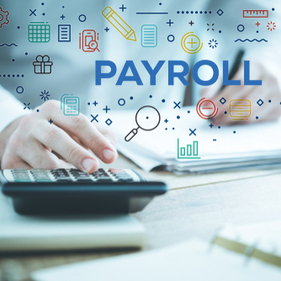Assistance for Small Businesses Under the Coronavirus Aid, Relief and Economic Security Act

On March 27, 2020, Congress passed the Coronavirus Aid, Relief, and Economic Security Act. The CARES Act includes a number of provisions benefiting small businesses. We summarize some of those provisions for you here. To the extent that you have any questions, please contact one of our attorneys listed below.
Paycheck Protection Program (PPP):
The most beneficial provision of the CARES Act for small businesses may be the Paycheck Protection Program (the “PPP”). The PPP provides immediate funding to qualifying small businesses (including nonprofits) to keep them operational during this uncertain time. Generally speaking, a small business with 500 employees or less is entitled to a loan (“PPP Loan”) in a principal amount equal to 2.5x its average monthly payroll costs. The loan can be used by the qualifying small business to pay payroll, health care benefits, rent, interest on an existing mortgage, utilities and interest on debts incurred before February 15, 2020. What’s more, if the business meets certain requirements, a portion of the loan can be forgiven with no tax consequences. In other words, a portion of these operational costs will be paid for by the Federal Government at no cost to the small business! Here are additional details of what’s provided in the Act as it relates to the PPP:
- PPP Loans can be made up to the lesser of 2.5 times the prior 12 months average “payroll expense” or $10 million.
- PPP Loans are term loans with up to 10 year maturity. See Important Update on PPP below.
- PPP Loans carry a rate not to exceed 4% per annum and payments can be deferred from 6 to 12 months. See Important Update on PPP below.
- No origination fees will be charged to borrowers and no collateral or personal guarantees will be required.
- Loans made under SBA’s Disaster Loan Program on or after January 31, 2020 can be refinanced through the PPP Loan.
- An amount equal to 8 weeks of qualifying operational costs – or a reduced portion of that amount depending on employee retention rate – may be forgiven without tax consequence to the borrower.
- Loans will be available through SBA approved lenders.
IMPORTANT NOTE: Qualifying small businesses with existing credit facilities should be mindful of existing loan covenants that may be implicated in connection with a PPP Loan. That said, we are advising our clients to reach out to their existing lenders if they are interested in obtaining a PPP Loan because existing lenders: (i) are likely in the best position to provide funding under the PPP (we have been told by certain lenders that they are only servicing existing clients), and (ii) already have knowledge of any such covenants.
|
IMPORTANT UPDATE ON PPP: On March 31, the SBA issued guidelines (“SBA Guidelines”) for the PPP. While the CARES Act provides for a maximum maturity of 10 years, and an interest rate not to exceed 4% per annum, the SBA Guidelines provide that all PPP Loans will have a 2-year maturity, and a rate per annum of 0.5%. On April 2, the SBA issued further clarification through its Interim Final Rule providing that all PPP Loans will carry a rate per annum of 1.0%; the Interim Final Rule does not change the 2-year maturity, but it’s not clear from what date maturity will be measured (date of loan v. date of forgiveness as provided in the Act). Needless to the say, the parameters of the PPP are fluid and clients are urged to keep apprised of developments. In any event, with such a short repayment period, we expect that many borrowers, in an effort to manage cash flow post-forgiveness, will try to align the principal amount of their PPP Loan with their projected forgiveness amount. Any amount in excess of the forgiveness amount would have to be paid back within the 2-year repayment period. Also, the SBA Guidelines and Interim Final Rule provide that all PPP Loans will:
A link to the SBA Guidelines can be found here: https://www.sba.gov/about-sba/sba-newsroom/press-releases-media-advisories/349-billion-emergency-small-business-capital-cleared-sba-and-treasury-begin-unprecedented-public A link to the SBA’s Interim Final Rule can be found here: https://home.treasury.gov/system/files/136/PPP--IFRN%20FINAL.pdf |
Employee Retention Tax Credit:
In lieu of the PPP, and for businesses ineligible to participate in that program, the CARES Act provides a refundable tax credit against the social security taxes of a business severely impacted by the COVID-19 outbreak. The Employee Retention Tax Credit (ERTC) is equal to 50% of the first $10,000 of wages paid to employees between March 13, 2020 and December 31, 2020, up to a maximum credit of $5,000 per employee. For employers with 100 or fewer employees, all employee wages and payments made for health care coverage (subject to the $10,000 limit) paid during a period in which there was a severe coronavirus impact, can be included in the credit calculation. For employers with more than 100 employees, only wages paid to employees not performing any services (whether in person or remotely) to the company due to the virus can be included in the calculation. A business is deemed severely impacted if: (i) it encounters a 50% reduction (compared to the same quarter in the prior year) in gross receipts, or (ii) the business has fully or partially suspended its operations due to orders from an applicable government authority due to the coronavirus.
Payroll Tax Payment Deferred:
A qualifying business that receives a PPP Loan, which loan is not forgiven in whole or in part, can also defer payment of its share of payroll taxes on wages paid for the period ending December 31, 2020. Payment of the deferred amounts is staged over two years – 50% is due December 31, 2021 and the balance is due on December 31, 2022.
Other Provisions:
- $10,000 Grant in Connection with Economic Injury Disaster Loan: Economic Injury Disaster Loans were introduced by earlier legislation. The CARES Act provides for an immediate (within 3 days of application) $10,000 grant to EIDL applicants. Grants do not have to be repaid.
- Charitable Contributions. The Act increases the deductible amount for an individual’s “qualified contributions” — which are defined as cash contributions made during the 2020 calendar year to public charities other than supporting organizations and donor advised funds — to 100% of the individual’s adjusted gross income, subject to a reduction for other charitable contributions.
If you have questions, contact one of the following attorneys:
 Alan Mark - amark@paleyrothman.com, 301-951-9337
Alan Mark - amark@paleyrothman.com, 301-951-9337
 Kevin D’Anna - kdanna@paleyrothman.com, 301-951-9349
Kevin D’Anna - kdanna@paleyrothman.com, 301-951-9349
